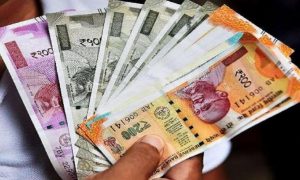Pushkar Mukewar and Neil Kothari, classmates at Wharton in 2009, soon became friends and realised that they were interested in entrepreneurship. But when they graduated in 2011, they did not have the idea. After a few years of working in the finance industry, they realised that lending was big business. In 2015, the duo set up Drip Capital, a trade finance company that provides collateral-free, post-shipment finance to Indian exporters “with instant approvals and minimal documentation”.
Trade finance is an age-old, paper-based industry dominated by banks that focus on large, established corporate customers. Small businesses may account for 40 percent of international trade, but they still remain neglected by banks. That is where Drip Capital comes in: it is using technology to re-build core parts of the international trade finance infrastructure, and make underwriting and financing of international B2B transactions seamless for small businesses.
Making finance easily accessible
“Our mission is to level the playing field for small businesses in emerging markets and to finance their international trade at the click of a button,” say Neil and Pushkar.
Indian MSME exporters face umpteen difficulties due to bureaucracy, slow turnaround times, and demands for collateral. Drip Capital steps in to give these exporters collateral-free, working capital at competitive rates of interest as rapidly as possible. The product helps working capital-strapped MSME exporters access alternative financing to grow their businesses faster than they could otherwise.
The startup claims to have enabled $300 million of trade on its platform so far.
“Drip Capital’s primary business involves invoice factoring or bill discounting. The company is largely focused on the intersection of MSME and export sectors,” Pushkar says. Companies like KredX, Incred, and Indify offer bill discounting services to businesses that trade domestically. Drip Capital, on the other hand, offers bill discounting to SME exporters that ship goods internationally.
How it works
Take, for example, an exporter who has maxed out his banking limit, and is looking for a working capital solution. This exporter reaches out to Drip Capital online and fills out a two-minute application form. Based on the information submitted, Drip analyses the exporter’s eligibility within 24 hours. If eligible, an offer letter is given to the exporter, detailing the terms of the credit arrangement.
After the offer is accepted, an automated risk assessment of the exporter is done, based on various data sources and parameters. The credit facility is eventually set up for the exporter after e-signing of legal documents.
To receive financing, the exporter must submit soft copies of the invoice and shipping document on Drip Capital’s online portal. The startup processes the same and transfers funding to the exporter within 12 hours of invoice submission.
After setting up India operations in Mumbai, in 2016 , Pushkar started reaching out to exporters via cold calling. When an exporter from Anand, Gujarat, expressed an interest in the product, Pushkar travelled to Anand to meet him. The client, a firm named Dhara Foods, was into selling processed/packaged foods to grocery stores in the US. Since the client was a trader, he lacked the ability to put up collateral. Without collateral, it was proving very difficult for him to get finance via traditional banking lines and similar services.
Drip Capital offered to provide collateral-free working capital to Dhara Foods by financing his export invoice. The exporter immediately saw the benefits of the product and discounted his invoices with Drip, generating the company’s very first revenue.
For more updates: Like us on Facebook and follow us on Twitter & Instagram.





































